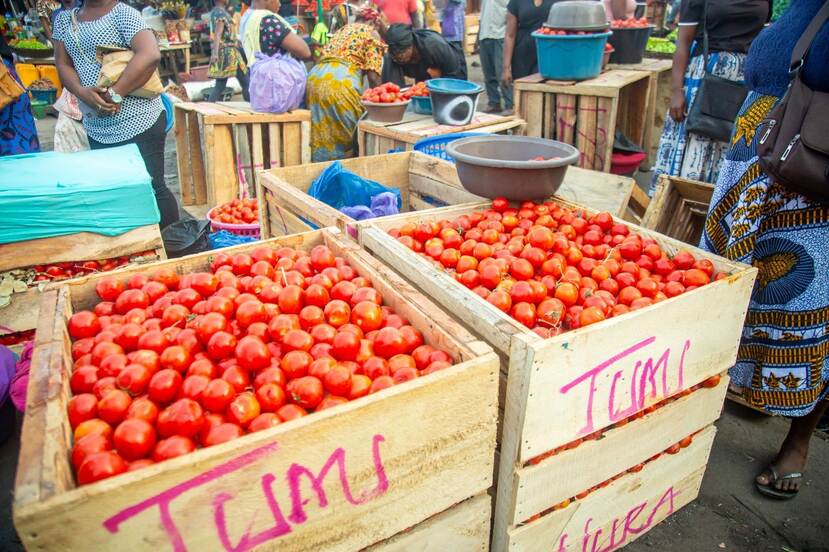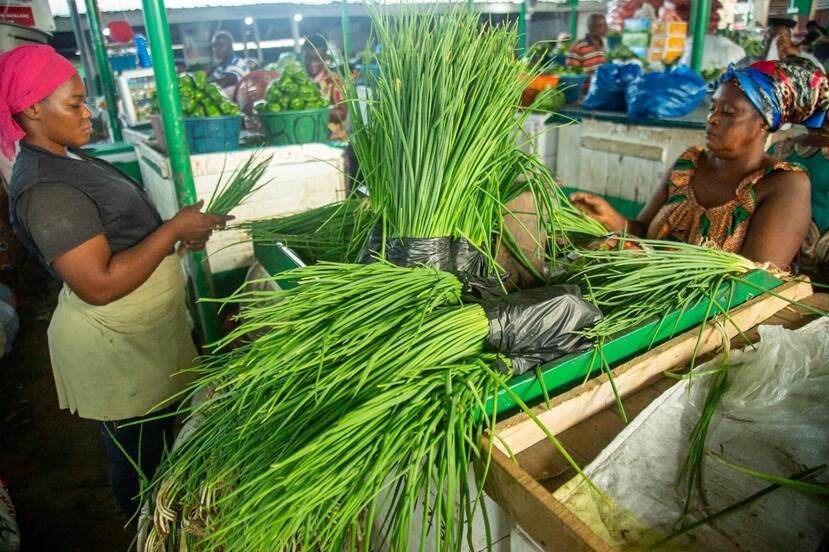Harvesting Opportunities: The Untapped Potential of Ghana's Vegetable Sector
The Ghanaian horticultural sector holds significant promise for farmers, processors, input suppliers, and investors, for a diverse array of vegetables deeply ingrained in the nation's cuisine. With an emerging middle class, rapid urbanisation, and a growing population, there is a rising demand for high-quality vegetables, presenting ample opportunities for growth and investment as identified in the recently published Ghana Vegetable Market Flow Mapping.

Despite the diversity of Ghana's vegetable sector, local farmers struggle to capitalise on opportunities within the market. They face stiff competition from neighbouring countries like Burkina Faso and Niger, particularly in the production of onions and tomatoes. Despite the implementation of numerous development interventions over the past decade, there has been a slow uptake of good agricultural practices. In addition, investment in equipment that would greatly increase the quality and yield of farmer’s production is limited (such as small-scale irrigation). Addressing these challenges requires concerted efforts from both public and private sectors, focusing on value chain optimisation, quality control, and market promotion.
Overview of Ghana's Vegetable Sector
Tomatoes and onions are staples in Ghanaian cuisine, yet their trade systems are quite complex and pose challenges for potential investments. Onions lack immediate prospects, so exploring new ideas in other sectors appears more promising. The professional production of tomatoes outside Burkina Faso's main production period, primarily for use as salad tomatoes, stands out as a viable opportunity in the otherwise constrained tomato value chain.
Expanding the export market for fresh and dried peppers emerges as a lucrative opportunity. In addition, indigenous vegetables like okra and garden eggs boast competitive advantages, while salad greens hold significant growth potential, especially given the rising trend of incorporating salads into meals. Promoting the cultivation and consumption of "new vegetables" (like zucchini, green beans and butternut) represents a promising avenue for diversifying agricultural production and meeting evolving consumer preferences.
Ghana must prioritise value chain professionalisation, quality control, infrastructure investment, capacity building, research, and market access

To fully capitalise on these opportunities, various interventions are needed. These range from largescale investments that will require significant investments to initiatives tailored for entrepreneurial farmers and youth employment. A crucial opportunity lies in establishing a comprehensive market data system to equip stakeholders with real-time information for effective decision-making, though challenges in data sharing and transparency must be addressed for successful implementation. Additionally, accessible, and cost-effective farming techniques, particularly through youth involvement, and enhanced farmer-trader linkages offer promising avenues for sectoral growth and professionalisation.
Private companies can play a pivotal role by providing technical expertise, investing in infrastructure, offering financing solutions, facilitating market linkages, promoting sustainable practices, providing innovative technology solutions, and engaging in research and development
To leverage these opportunities, Ghana must prioritise value chain professionalisation, quality control, infrastructure investment, capacity building, research, and market access. Specific steps for introducing new vegetables involve market education, import infrastructure improvement, quality control measures, local production support, and fostering partnerships.
Private companies can play a pivotal role by providing technical expertise, investing in infrastructure, offering financing solutions, facilitating market linkages, promoting sustainable practices, providing innovative technology solutions, and engaging in research and development.
By aligning efforts across the public and private sectors, Ghana can unlock the full potential of its vegetable sector, ensuring sustainable growth and food security for its population.
The way forward
The agricultural team together with the colleagues in The Hague will continue to work on the development of the horticultural sector in Ghana. Send us an email via acc-lnv@minbuza.nl if you want to know more. You can also follow this link to read the full report 'Vegetable Market Flow Mapping Ghana'.